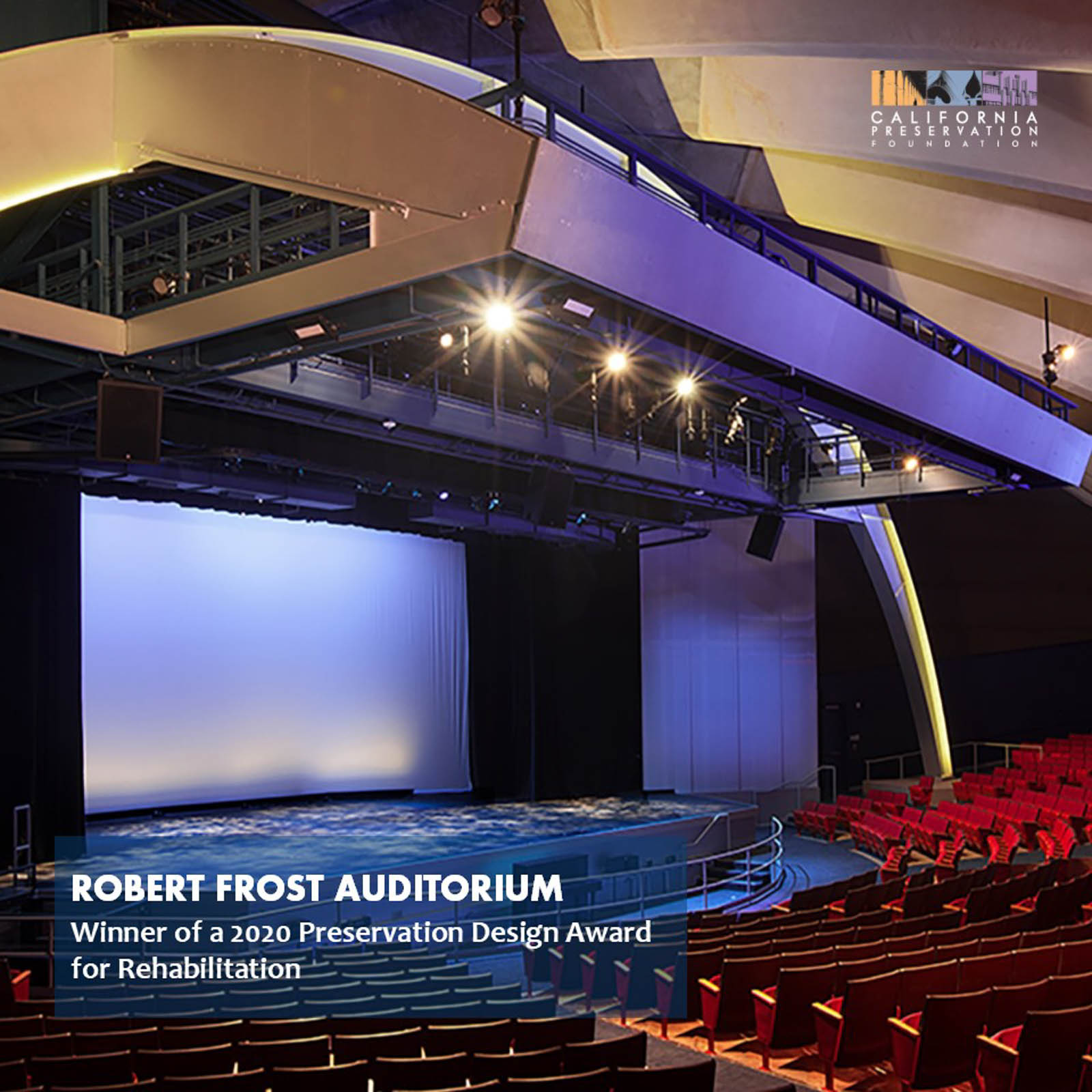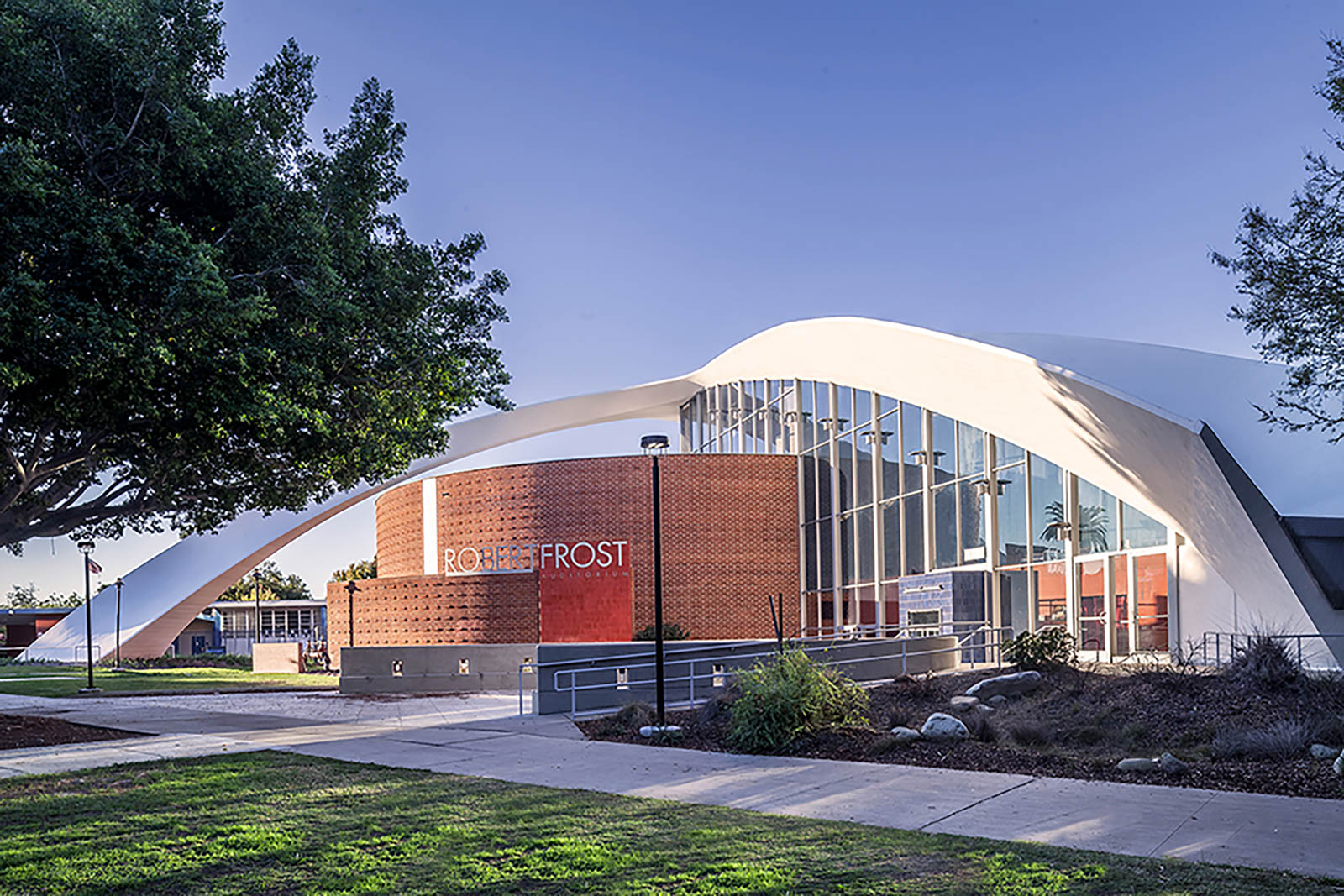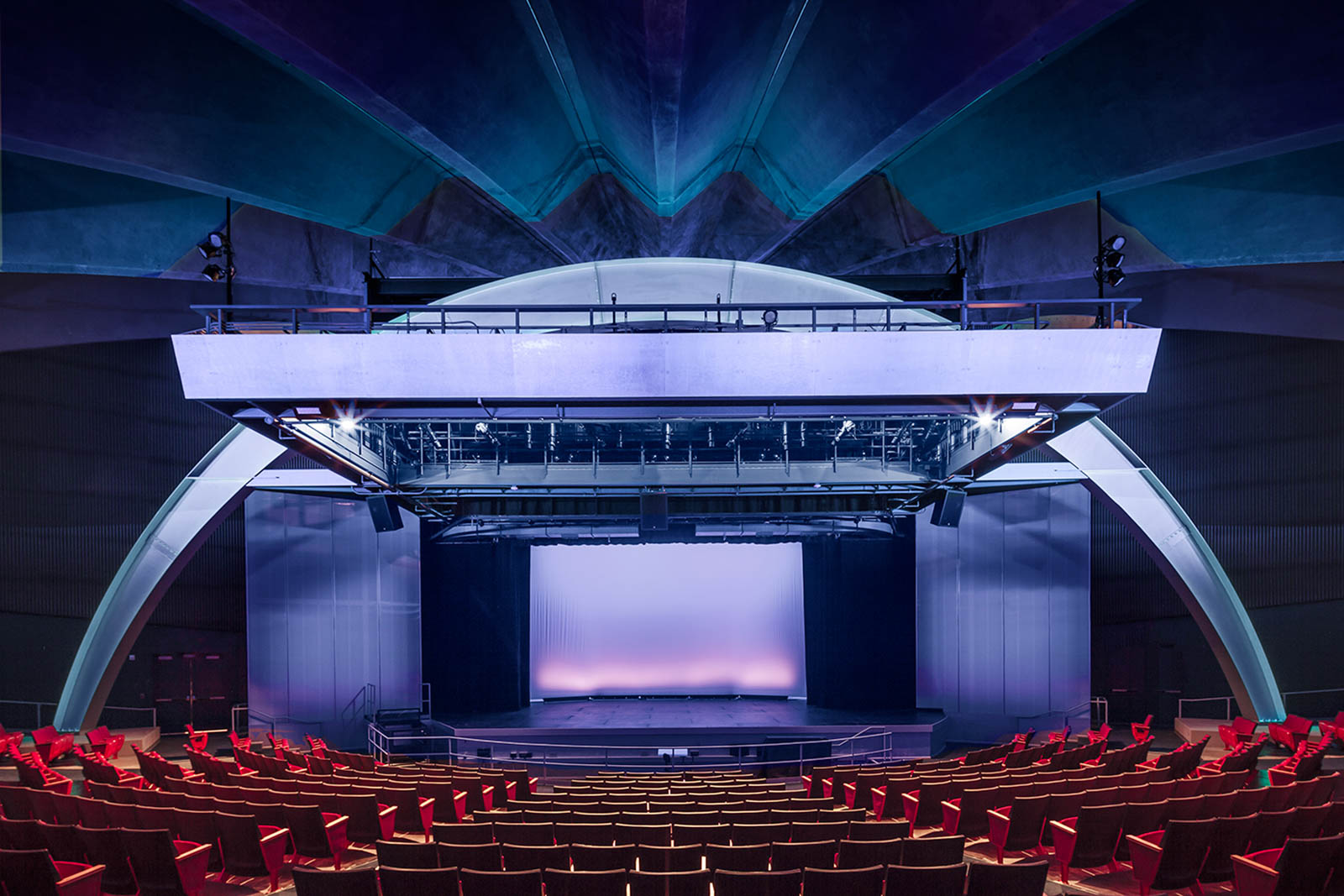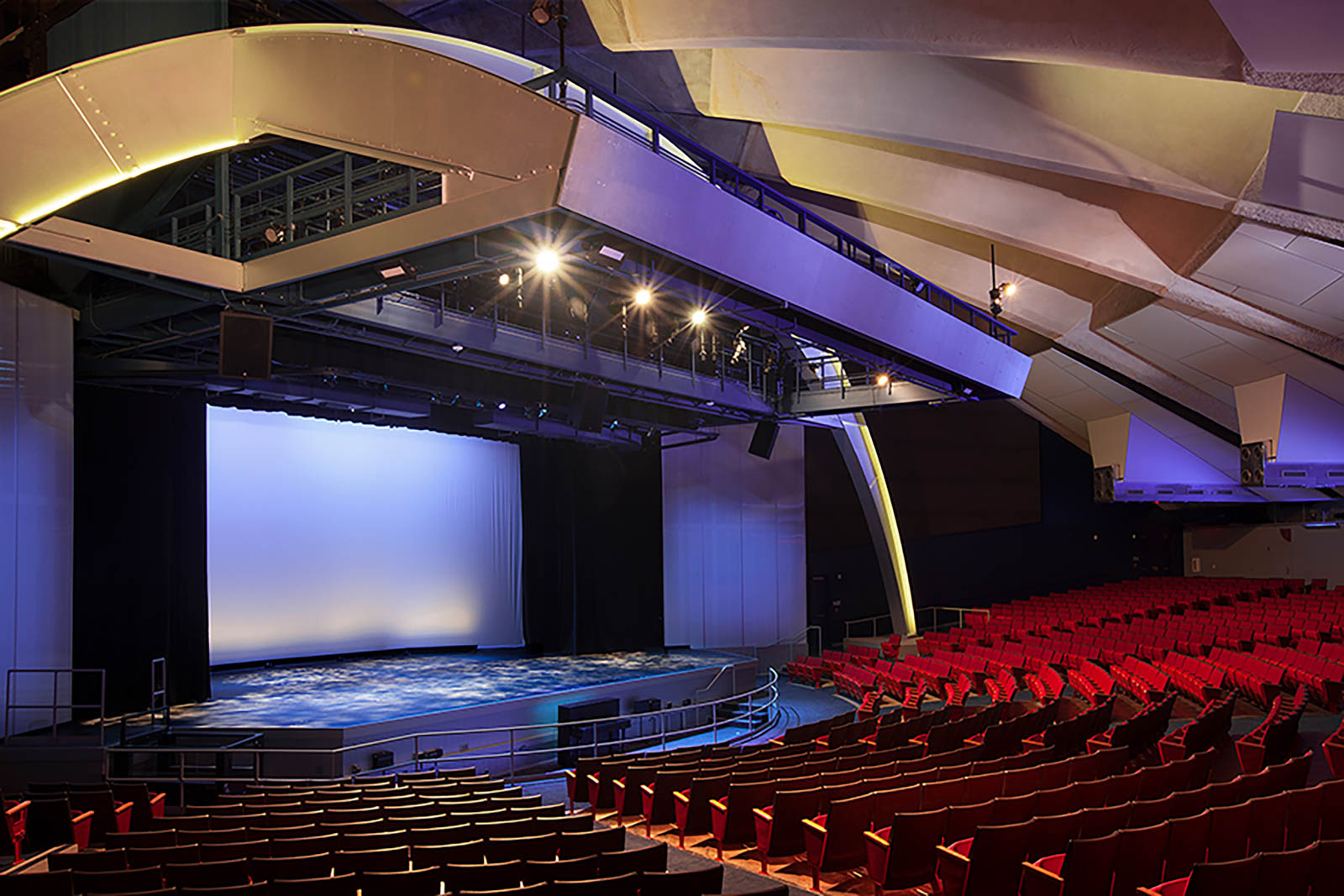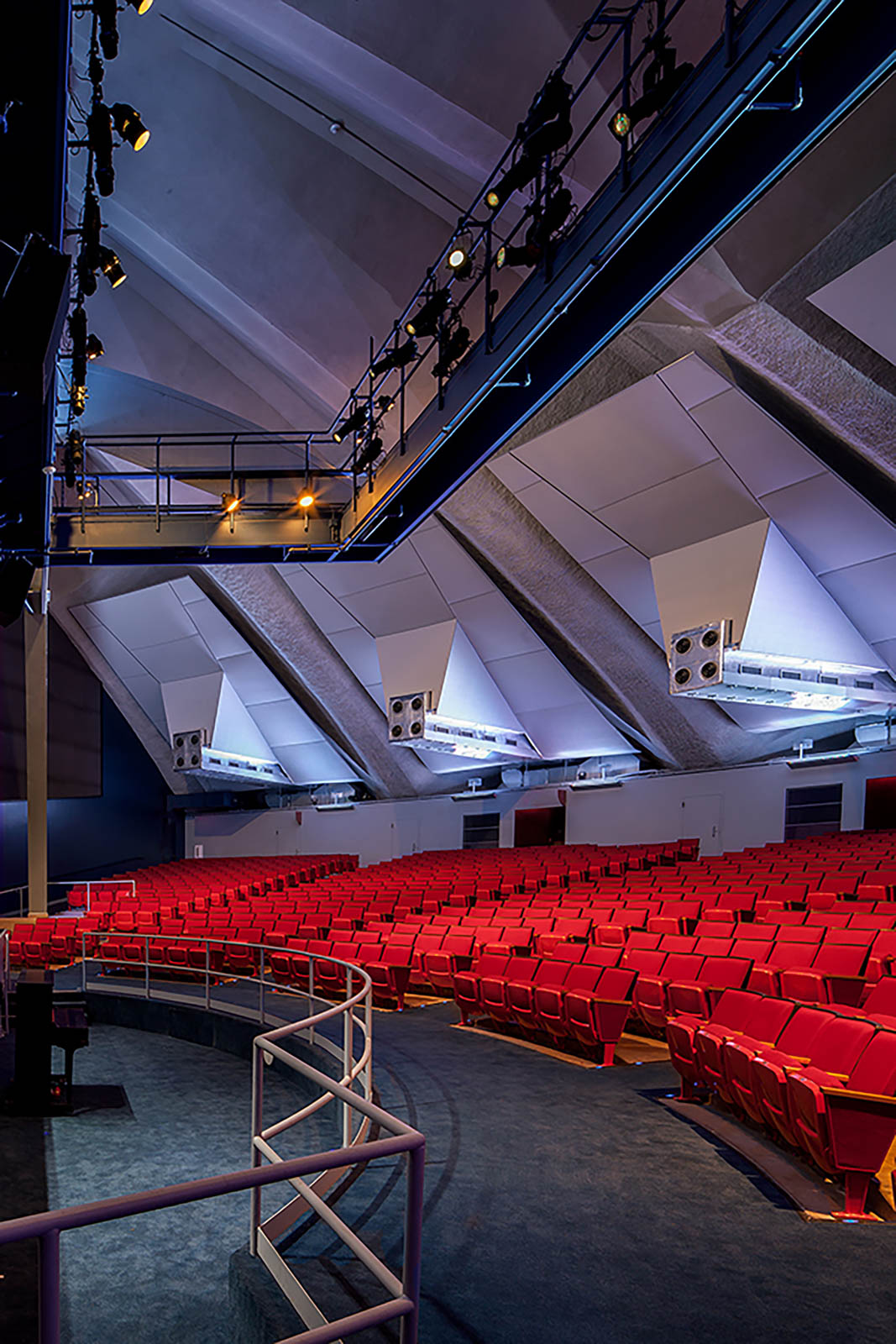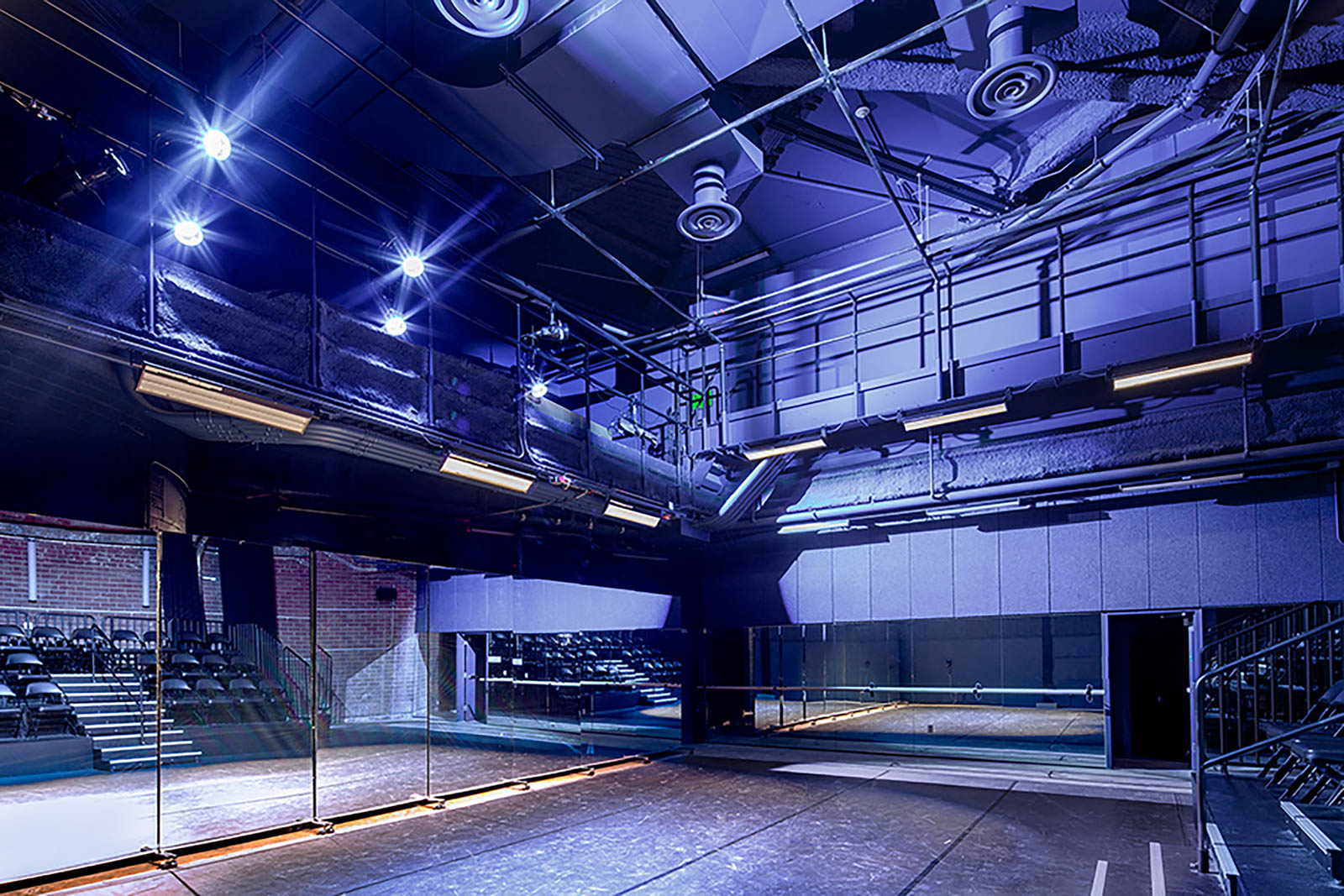About CPF and the Awards
The California Preservation Awards are a statewide hallmark, showcasing the best in historic preservation. The awards ceremony includes the presentation of the Preservation Design Awards and the President’s Awards, bringing together hundreds of people each year to share and celebrate excellence in preservation.
The California Preservation Foundation (CPF), a 501c3 nonprofit, was incorporated in 1978. We now support a national network of more than 36,000 members and supporters. Click here to learn how you can become a member.
Robert Frost Auditorium Project Team
Architect
Hsinming Fung – Mithun | Hodgetts + Fung
Architect
Craig Hodgetts – Mithun | Hodgetts + Fung
Architect
Darin Vieira – Mithun | Hodgetts + Fung
Owner / Client
Robert Quinn – Culver City Unified School District
Electrical Engineer
Kenneth Lucci – Lucci & Associates
Theatre Consultant
Michael Ferguson – TheatreDNA
Acoustic Engineer
David Conant – Mckay Conant Hoover, Inc.
Mechanical Engineer
Mark Berg – The Sullivan Partnership
Structural Engineer
Tom Nishi – Englekirk Structural Engineering
Structural Engineer
Mitchel Le Heux – Englekirk Structural Engineering
Consultant
Timothy Larose – Hughes Associates
Consultant
Mark Madison – Energy Code Works, Inc.
Consultant
Thomas Mitze – Mitze Productions
Value Engineer
Jacqueline Chan – Cumming, LLC.
Bond Manager
Chris Dunne – Harris & Associates
Construction Manager
Trevor Perry – Balfour Beatty Construction
Robert Frost Auditorium
The Robert Frost Auditorium is the winner of a 2020 Preservation Design Award for Rehabilitation. Award recipients are selected by a jury of top professionals in the fields of architecture, engineering, planning, and history, as well as renowned architecture critics and journalists. The Award will be presented on Wednesday, October 21, 2020 at an online awards ceremony. Tickets and sponsorship options are available at californiapreservation.org/awards.
About this project
Constructed in 1963, Robert Frost Auditorium had lain fallow for many years. Beloved by student performers despite the challenges of mounting a show, the unique sculptural concrete building had not kept pace with demands for theater technology and audience expectations. After an intensive dialogue with faculty, students and theater experts, a plan was proposed to exploit the theatrical potential of the building while honoring its architectural legacy.
To preserve and celebrate the existing structure, each element of the design was subject to careful consideration. With a radically reconceived HVAC system, it was possible to free back-of-house spaces from the constrictive radial geometry, adding a new black box space, expanding the scene shop and accessible dressing rooms. In the auditorium, a sculptural steel arch spans the main stage, supporting catwalks and stage machinery necessary to transform the Frost Auditorium into an innovative, modern theater.

